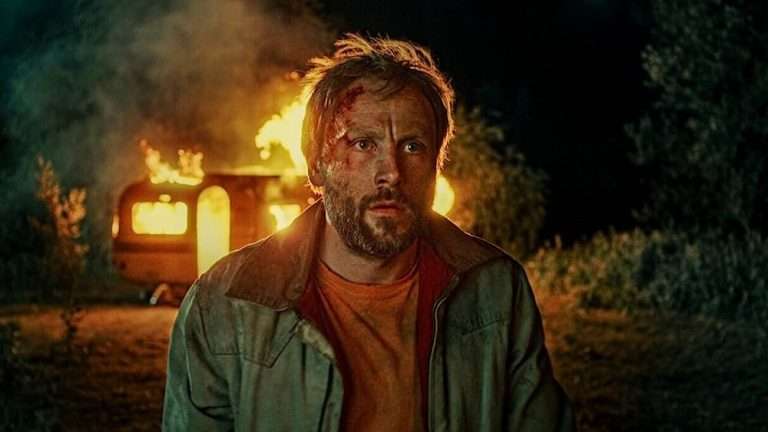Money Shot: The Pornhub Story: The way humans perceive sex has always been a topic of keen discussion. It makes for a curious exercise as it says a lot about how we project our desires onto someone and how we eventually choose to fulfill them. One of the ways in which we perceive it is, of course, through the consumption of porn. Now porn in itself has long followed the lead of technology – way back, it used to be drawn by hand. Then as things started getting accessible, it was photographed. It then found its way through the closed rooms on 8mm, then to movie theaters and video cassettes.
But ever since it penetrated the wider confines of the Internet in the past 15 years, porn has been synonymous with Pornhub. According to a report, it’s among the world’s top 10 most visited websites. However, the largest porn site in the world became a lightning rod of controversy recently when it was accused of being involved in abetting sex trafficking and blatant sexual abuse of children.
Netflix’s latest documentary, “Money Shot: The Pornhub Story,” directed by Suzanne Hillinger and produced by Alex Gibney’s Jigsaw Production, sheds light on what led to the controversy with a surprisingly informed and nuanced take. As it comes across as one of the more timely Netflix documentaries in recent memory, let’s take a detailed look at what it says about one of the most nefarious and unethical companies while also taking a look at some of the enshrouded consequences of shadow banning and virtue signaling in these times of political correctness.
Money Shot: The Pornhub Story (2023) Documentary Explained:
How Did Pornhub Explode Into Business? What’s MindGeek?
Ever since Pornhub exploded on the Internet, it drove a massive audience to the site, thus, turning innovation into a revolution that gave people wide access to adult content. At the very start of the documentary, we meet a couple of sex workers, including Gwen Adora and Siri Dahl. The two used Pornhub to fuel their careers, more specifically, the Modelhub section of the site. Thus, the platform allowed self-employed people to post and profit from their own content, which helped them avoid exploitative and potentially (more) unethical corporate companies. Gwen talks about how this all helped her do videography, marketing, and even editing all by herself. Another porn performer notes how his income grew from $4,000 monthly to a whopping $10,000 thanks to Modelhub.
We then get to see Noelle Perdue – a porn industry professional who becomes crucial in addressing necessary pushbacks throughout the film – talk about how most people even think that Pornhub is the biggest or most viewed site on the internet. The site is actually owned by a company called MindGeek, based in Montreal, Canada. Perdue reveals how the parent company that owns Pornhub is just a hilariously boring office space in reality – one that masquerades itself as a giant tech company with middle-aged employees. MindGeek owns a bunch of adult companies, one of them including Brazzers, which takes care of the production side of things.
Who Started Pornhub? What’s the Pornsite’s Successful Data-harvesting Model?
The idea behind Pornhub came from three Concordia students who initially started it off as a lark, The Logic journalist Martin Patriquin narrates to us at an early point in the documentary. However, the three eventually sold the company in 2010 to a guy named Fabian Thylmann. Things took off from then on, but not everyone thought enough about such massive traffic that Pornhub could drive to its site.
Mike Stabile, a famous Porn Industry Advocate, sits to interview for the documentary and gives us an insight into how MindGeek used things to its advantage over the years. By coming from outside the industry, the company slowly grew its algorithm, powerful enough to bring it on par with streaming platforms of the day. It’s basically by running intense data harvesting operations that Pornhub has been able to build an algorithm that’s even better than that of Netflix. This renders huge profile returns for MindGeek, which through Pornhub, offers its audience a wide range of catalogs to choose from while constantly tethering to their preferred choice.
Who Is Fabian Thylmann? What Controversy Did He Get Into?
It wasn’t that Pornhub had never gotten into a controversy up until recently. In fact, way back in 2012, Thylmann was convicted of massive tax invasions when he was arrested on a warrant in Brussels. The company’s managing partner was arrested in Belgium in October of that year, after which two other people bought the company’s assets. These two were MindGeek’s employees – Feras Antoon and David Tassillo, while Bernd Bergmair soon became the main investor.
Through the informed experiences of the porn performers featured in the documentary, we learn of how the rise of platforms such as OnlyFans gave sex workers and performers an opportunity to gain full financial autonomy. Through these points of view, we learn how at the crossroads of every technological innovation, the people who get left in the dust are primarily sex workers. Most of the people in the industry at the time were unaware of how there would be yet another revolution that would turn their heads in a few years.
Into Pornhub’s Troubling Policies: Who is Laila Micklewait?
Up until December 2020, even people without a verification process could upload anything through their accounts on Pornhub, including recorded videos that would often not be consensual. After that, multiple porn sites across the Internet have begun to start mandatory age verification. Dani Pinter, a senior legal counsel National Center on Sexual Exploitation (NCOSE), speaks of how it’s their job to expose each interweb of sexual exploitation and advocate for survivors who don’t have a voice.
However, it was Laila Micklewait, the founder and CEO of the Justice Defense Fund, who helped revolutionize a protest against the exploitation of minor survivors on these websites. She later went on to become the Founder of the global #Traffickinghub movement, which was supported by millions of people. Through her intense media campaign that mainly spread through Twitter, Micklewait was able to get more than 2.2 million people to sign a petition to shut Pornhub down.
Who Is Nicholas Kristof? What Mainstream Influence Did He Make?
The Twitterstorm led by Micklewait soon found its mainstream credibility when Nicholas Kristof, the Pulitzer prize-winning The New York Times columnist, published a detailed piece entitled “The Children of Pornhub” in December 2020. The journalist sits here to talk about how, when he first came across the story, he thought it was just exaggerated. Soon upon going down the rabbit hole of it, he grew more and more disturbed and realized how real everything was. Kristof reveals how the CEO of the company had refused to talk to him while addressing how the article blew up the pressing issue into a phenomenon.
After the NYT article, things particularly seemed to look difficult for the guys at MindGeek. We get to watch the Pornhub ambassador, Asa Akira, assert that people often cannot see how sex work and sex trafficking are completely different things. This was, of course, in response to MasterCard and Visa’s decision to pull off their payment services from the website. These protests initially led Pornhub executives to remove close to 10 million videos from the website. However, only in February of 2021 did the company’s top executives, including Feras Antoon (the CEO of MindGeek), have to attend a hearing at the Canadian parliament. In a desperate attempt to water down the global attention, the company then removed about 80% of the unverified content from its website.
The Downside of The Revolution:
At an interesting point in contention where things pretty much appeared morally black or white, the Netflix documentary also doesn’t shy away from how many of the sudden moves proved counterintuitive, as it left many sex workers with no financial security. For instance, the taking of millions of unverified accounts off the website also meant that those people could never be traced back. At the same time, the porn performers had to look in the face of uncertainty that plagued the production over the possibility of being shut down any day. It also emerged that some of the protests against the website, which argued that the site be shut down, were allied with the wider Christian anti-porn movement, which comes from a very different place than simply policing the unethical.
What Happened To Feras Antoon’s Mansion? Why Did OnlyFans Consider Banning Sexually Explicit Content?
After the public hearing, we see how Feras Antoon’s giant mansion suspiciously became the target of an arson. There’s never been any official proof or explanation of what led to it. Still, the timing of it did raise curious questions at the time as it had happened right after the parliamentary hearings where questions were raised about Antoon’s assets. At this point in the documentary, the makers also shed further light on the gray area that’s often left less discussed post the aftermath of any giant media outrage. It puts the idea to us through one of the sex workers, who points out how such broad-stroke generalized criticism often ends up affecting ones that it shouldn’t affect.
This takes on a deeper meaning when we see how the implementation of FOTSA (Allow States and Victims to Fight Online Sex Trafficking Act) and SEST (Stop Enabling Sex Traffickers Act SESTA) put out control on even content over other social media platforms, such as OnlyFans and elsewhere. For instance, one of the porn performers notes how she started getting shadowbanned even over Instagram for regular posts that had nothing explicit about them.
Services such as OnlyFans contemplating making a complete 180-degree shift in their business model by banning sexually explicit content further exacerbated the problems that young sex workers and performers faced. This wasn’t just counterintuitive to the purpose of the revolution but once again put them at square one, where they would have to turn to corporate media houses for their income.
Money Shot: The Pornhub Story (2023) Documentary Final Thoughts:
“Porn is traditionally the canary in the coalmine of free speech,” one of the journalists correctly notes at the end of the Netflix documentary. It paints a richer context in today’s polarizing times to what I had discussed earlier at the start of the piece by co-relating the shift in porn consumption with technological innovation. After any person does anything wrong, it’s natural to ask questions that help prevent similar things in the future. But it shouldn’t be the case that we shut down all communication by blindly watering down decades of nuance and understanding we’ve come to develop about society to prevent any crime from ever happening. Because that sort of one-noted solution only ends a sort of free society that we live in.
In June of last year, both Feras Antoon and David Tassillo resigned as executives of MindGeek. However, they remain the owners of the company with Bernd Bergmair. Later in September, Pornhub’s Instagram was permanently banned for reportedly violating Meta’s terms of service. But is it enough? Has it remotely helped people enough to claim justice for the sexual trafficking of millions of children? What has the cost of the online protests been?
More importantly, is it enough to dent a company and a website that’s marketed itself with a billboard in places like Times Square – a website that continues to gain much of its profit from advertising, with around 3 billion ad impressions a day? After all, this, too, speaks innately of how we humans choose to chase events, especially when they’re about something that we often so inherently desire.






